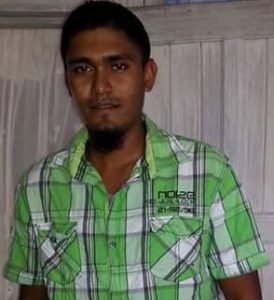THE US Court of Appeal for the Second Circuit, has ordered overseas-based Guyanese, Marcus Bisram, be extradited to Guyana.
Bisram, a dual citizen in the US, currently faces a charge of murder in Guyana for an incident which occurred on the night of October 31, 2016.
He is accused of ordering the fatal beating of Faiyaz Narinedatt, a young father of two.
Bisram had been fighting extradition to Guyana in the US.
Recently, the appeal court in the US took a final decision to deny a petition for a re-hearing of his appeal arguments and a motion to stay the mandate.
In July 2019, Bisram lost his appeal to an order of an extradition made by a district court in New York.
The court in New York had upheld that the US had signed an extradition treaty with the UK on December 22, 1931. The treaty remained in effect even after Guyana obtained its Independence.
The necessary documentation and other filings will have to be done before Bisram is handed over to local law enforcement. It is unclear at this point as to how soon Bisram could arrive in Guyana.
Bisram was charged in absentia for the murder of Faiyaz Narinedatt on October 31, 2016.
On February 14, 2017, following an investigation into Narinedatt’s death, Guyana submitted a formal request to the US Department of State for Bisram’s extradition to face a charge of murder, after he had fled to the US.

However, on October 12, 2017, a judge in the US District Court for the Eastern District of New York issued a Certificate of Extraditability, certifying to the Secretary of State that there was probable cause to believe that Bisram committed the charged murder and authorising the secretary’s extradition of Bisram to Guyana.
But, on November 17, 2017, Bisram filed a petition for a writ of habeas corpus in the US District Court for the Eastern District of New York, challenging the Certificate of Extraditability.
On October 31, 2018, following several extensions, the district court denied Bisram’s petition, concurring in the magistrate judge’s determination that there was “reasonable ground” to believe that Bisram committed the murder as charged.
Then Bisram, through his attorneys, appealed the district court’s denial of his habeas petition on the grounds that the evidence presented to the extradition court failed to establish a reasonable ground to believe that Bisram committed the charged murder, especially in light of a witness’s subsequent alleged recantation of his original statement to police and that Bisram received constitutionally ineffective assistance of counsel during the extradition and habeas proceedings.
However, the US court differed: “We agree with all three reasons the district court gave for declining to issue a writ of habeas corpus to Bisram on the basis of (a witness’) alleged recantation. At a minimum, we cannot say that the district court erred in concluding that the evidence submitted by Guyana surpassed the minimal threshold of ‘any evidence warranting the finding that there was a reasonable ground to believe the accused guilty’”.
It added: “We have considered all of Bisram’s remaining arguments and find them to be without merit. Accordingly, we affirm the judgment of the district court”.
>>>>>>>>>>>>>>>>>>>>>>>>>>>
Picture saved as Marcus Bisram
Caption: Marcus Bisram
Picture saved as Faiyaz Narinedatt
Caption: Dead: Faiyaz Narinedatt



.jpg)









